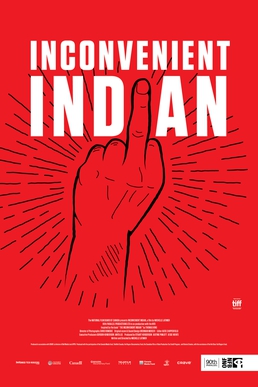Related Research Articles

The Toronto International Film Festival is one of the most prestigious and largest publicly attended film festivals in the world, founded in 1976 and taking place each September. It is also a permanent destination for film culture operating out of the TIFF Lightbox cultural centre, located in Downtown Toronto.

Alanis Obomsawin, is an Abenaki American-Canadian filmmaker, singer, artist, and activist primarily known for her documentary films. Born in New Hampshire, United States and raised primarily in Quebec, Canada, she has written and directed many National Film Board of Canada documentaries on First Nations issues. Obomsawin is a member of Film Fatales independent women filmmakers.

John Greyson is a Canadian director, writer, video artist, producer, and political activist, whose work frequently deals with queer characters and themes. He was part of a loosely affiliated group of filmmakers to emerge in the 1980s from Toronto known as the Toronto New Wave.

Florent Vollant is a Canadian singer-songwriter. An Innu from Maliotenam, Quebec, he was half of the popular folk music duo Kashtin, one of the most significant musical groups in First Nations history. He has subsequently released four solo albums.
Alan Zweig is a Canadian documentary filmmaker known for often using film to explore his own life.

The 6th Toronto International Film Festival (TIFF) took place in Toronto, Ontario, Canada between September 10 and September 19, 1981. The festival screened films from more than twenty different countries. Ticket to Heaven, a Canadian film, was selected as the opening film. Another Canadian film, Threshold, was chosen as the closing film. The People's Choice Award was awarded to Chariots of Fire, directed by Hugh Hudson; the film later won an Oscar for Best Picture.
Arnait Video Productions is a women's filmmaking collective that aims to value the voices of Inuit women in debates of interest to all Canadians. Arnait is related to Isuma Productions.
Our People Will Be Healed is a 2017 Canadian documentary film by Alanis Obomsawin. The film premiered at the 2017 Toronto International Film Festival. The film explores the Helen Betty Osborne Ininiw Education Resource Centre, an N-12 Frontier School Division school in Norway House, Manitoba where Cree students are taught about their own history and culture alongside the regular Manitoba school curriculum.
The Toronto International Film Festival People's Choice Award is an annual film award, presented by the Toronto International Film Festival to the film rated as the year's most popular film with festival audiences. Past sponsors of the award have included Cadillac and Grolsch.

Edge of the Knife is a 2018 Canadian drama film co-directed by Gwaai Edenshaw and Helen Haig-Brown. It is the first feature film spoken only in the Haida language. Set in 19th-century Haida Gwaii, it tells the classic Haida story of a traumatized and stranded man transformed into Gaagiixiid, the wildman.

Anthropocene: The Human Epoch is a 2018 Canadian documentary film made by Jennifer Baichwal, Nicholas de Pencier and Edward Burtynsky. It explores the emerging concept of a geological epoch called the Anthropocene, defined by the impact of humanity on natural development.
Canada's Top Ten is an annual honour, compiled by the Toronto International Film Festival and announced in December each year to identify and promote the year's best Canadian films. The list was first introduced in 2001 as an initiative to help publicize Canadian films.
Kim O’Bomsawin is a writer, film director, and a human rights activist specifically for Indigenous women in Canada and the U.S. O'Bomsawin is of Abenaki origin, which is a First Nation in Quebec, Canada. She is considered a leading indigenous filmmaker.

Inconvenient Indian is a 2020 Canadian documentary film, directed by Michelle Latimer. It is an adaptation of Thomas King's non-fiction book The Inconvenient Indian, focusing on narratives of indigenous peoples of Canada. King stars as the documentary's narrator, with Gail Maurice and other indigenous artists appearing.
Vincent Toi is a Mauritian-Canadian film director. He is most noted for his 2017 short film The Crying Conch, which was named to the Toronto International Film Festival's annual year-end Canada's Top Ten list for 2017; Toi also won the award for Most Promising Director of a Canadian Short Film at the 2017 Vancouver International Film Festival.
References
- ↑ Mike Cohen, "Telling Our Story: Four part series shares tales and traditions from 11 First Peoples". The Suburban , September 8, 2023.
- 1 2 "TELLING OUR STORY (Laissez-nous raconter) en sélection officielle au TIFF". CTVM, August 15, 2023.
- ↑ "Canadian TV series centred on race and identity among projects added to TIFF lineup". CP24, August 14, 2023.